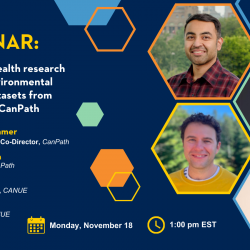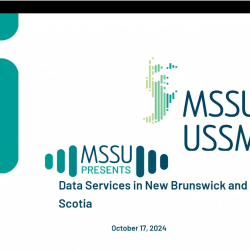The Guinness World Records team is once again reflecting on the record held by the Atlantic PATH cohort. In a new article, “Got your toe(nails)! Scientific study holds largest collection of toenail clippings,” Katherine Gross revisits the collection of toenail samples from Atlantic PATH participants. In 2013, Atlantic PATH received a Guinness Book of World Records for 24,999 toenail samples. Recruitment continued until 2015 and the total number of participants who donated toenails was 30,418!! Atlantic PATH represents participants across Nova Scotia, New Brunswick, Prince Edward Island, and Newfoundland and Labrador, a region with the highest rates of cancer and chronic disease in the country. “Toenails are an important part of our research….What we’re particularly interested in, in this context, is the extent to which environmental exposure affects our risk of disease.” Atlantic PATH has used data and biological samples to develop an established environmental and occupational health research stream. Stay tuned for more toenail research that is currently in progress, and you can find recent publications here: Hood, K., Sweeney, E., Ilie, G., Keltie, E., Kim, J.S. (2023), Toenail Arsenic Species and Metallome Profiles Associated with Breast, Cervical, Prostate, and Skin Cancer Prevalence in the Atlantic Partnership for Tomorrow’s Health Cohort. Frontiers in Public Health: Environmental health and Exposome, 11. https://doi.org/10.3389/fpubh.2023.1148283 Smith, N.K., Keltie, E., Sweeney, E., Weerasinghe, S., MacPherson, K., Kim, J.S. (2022). “Investigating the Association between Arsenic Exposure and Chronic Disease Using Toenail Speciation Biomarkers: A Feasibility Study.” Ecotoxicology and Environmental Safety. https://doi.org/10.1016/j.ecoenv.2022.113269 Keltie, E.; Cui, Y.; Hood, K.; Sweeney, E.; Ilie, G.; Adisesh, A.; Dummer, T.; Kim, J.S. (2022). “The Association of Prostate Cancer with the Profiles of Arsenic Species and Metallome: An Analysis from the Atlantic PATH Cohort Study.” Frontiers in Public Health, Environmental Health and Exposome. https://doi.org/10.3389/fpubh.2022.818069 Majouni, S., Kim, J.S., Sweeney, E., Keltie, E., Abidi, S. (2022). Applying Machine Learning to Arsenic Species and Metallomics Profiles of Toenails to Evaluate Associations of Environmental Arsenic with Incident Cancer Cases. Medical Informatics Europe Conference (MIE) Conference Proceedings. Studies in Health Technology and Informatics. Fleming, D., Crook, S., Evans, C., Nader, M., Atia, M., Hicks, J., Sweeney, E., McFarlane, C., Kim, J.S., Keltie, E., Adisesh, A. (2020). “Assessing arsenic in human toenail clippings using portable X-ray fluorescence.” Applied Radiation and Isotopes. https://doi.org/10.1016/j.apradiso.2020.109491 Fleming, D., Crook, S., Evans, C., Nader, M., Atia, M., Hicks, J., Sweeney, E., McFarlane, C., Kim, J.S., Keltie, E., Adisesh, A. (2020). “Portable X-ray Fluorescence of Zinc Applied to Human Toenail Clippings.” Journal of Trace Elements in Medicine and Biology. https://doi.org/10.1016/j.jtemb.2020.126603 Dummer, T., Yu, Z.M., Nauta, L., Murimboh, J., Parker, L. (2015). “Geostatistical modelling of arsenic in drinking water wells and related toenail arsenic concentrations across Nova Scotia, Canada.” Science of the Total Environment, 505. https://doi.org/10.1016/j.scitotenv.2014.02.055 Yu, Z.M., Dummer, T., Adams, A., Murimboh, J., Parker, L. (2014). “Relationship between drinking water and toenail arsenic concentration among a cohort of Nova Scotians.” Journal of Exposure Science and Environmental Epidemiology, 24. https://doi.org/10.1038/jes.2013.88 Yu, Z.M, Fung, B., Murimboh, J., Parker, L., Dummer, T. (2014). “What is the role of obesity in the aetiology of arsenic-related disease?” Environment International, 66. http://dx.doi.org/10.1016/j.envint.2014.01.028









